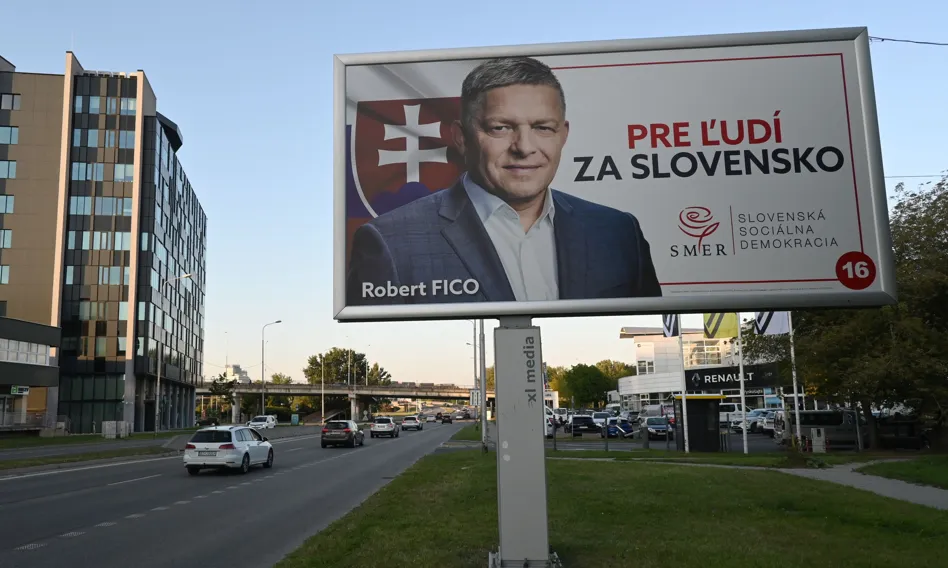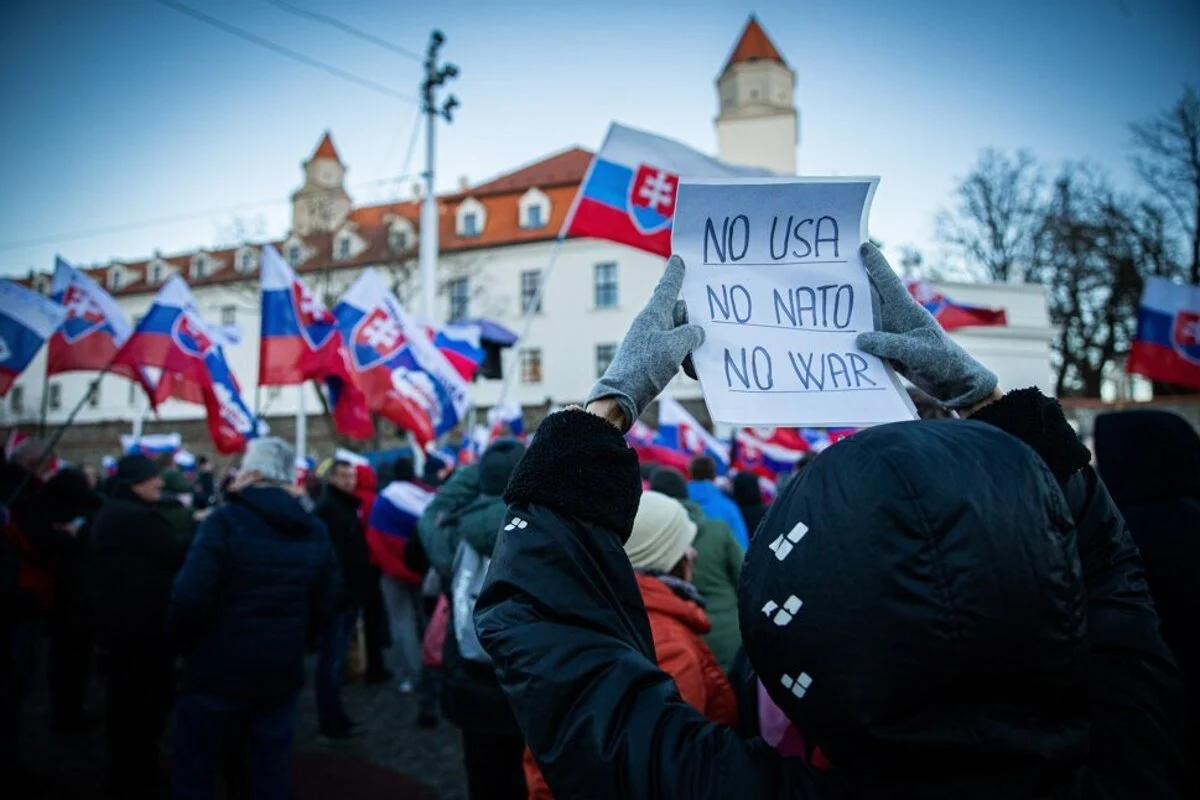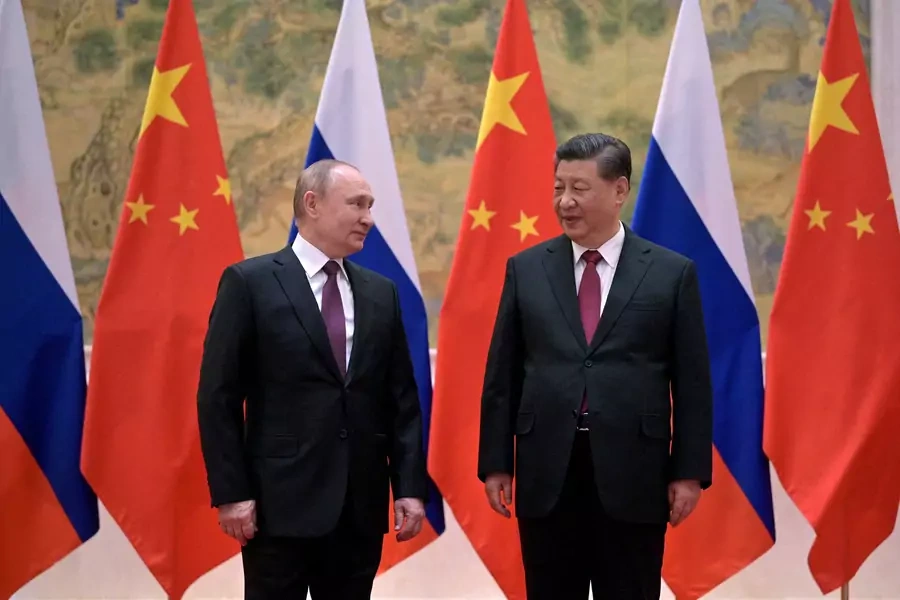Date: 22 November 2023 Author: Mikołaj Rogalewicz
Russian disinformation vs. parliamentary elections in Slovakia
National Council elections were held in Slovakia on 30 September, which were won by the national-left party Smer (23%). The election result meant that a collation had to be formed, as Smer received too few votes to govern alone. The mission to form a government was entrusted by Slovak President Zuzana Čaputová to Smer party leader Robert Fico, who was already in office. Smer has entered into a coalition agreement with the centre-left HLAS (Voice) and the nationalist Slovak National Party (SNS). The new governing coalition has 79 out of 150 seats in parliament.

The change of government in Slovakia signifies changes in the country’s foreign policy, in particular towards Russia and Ukraine. Indeed, Fico has repeatedly criticised the US for supporting Ukraine, blaming it for the war. The election result was influenced by Russia’s disinformation activities, which gained momentum in the pre-election period. Slovak society has been highly polarised since the beginning of Russia’s invasion of Ukraine. At the beginning of the war, opinion polls showed a decline in Slovaks’ sympathy for Russia, but in the following months this attitude changed. According to a survey by think tank Globsec, only 40 per cent of Slovaks believe that Russia is responsible for the war in Ukraine, while 34 per cent say the West is responsible for “provoking Russia” and 17 per cent say Ukraine is oppressing the Russian-speaking population.
The election campaign in Slovakia focused on the economic situation, migration and the Russian-Ukrainian war. The Smer party presented the most radical electoral demands, announcing, among other things, more state interventionism and an expansion of social policy. It also criticised the US for helping Ukraine and emphasised respect for non-democratic states such as China.
Russian disinformation, which focused on the situation in Ukraine and the spread of anti-immigrant narratives, played an important role in the election campaign. In the first two weeks of September, more than 365,000 election-related disinformation posts were recorded on Slovak social media, generating on average five times the reach of the average post. Crucial to the effectiveness of the pro-Russian narratives, however, was the fact that they were repeated in the media by many Slovak politicians, particularly from the Smer party. The president of this party has repeatedly spoken negatively about Ukraine and criticised US and EU support for the country. He has also questioned the effectiveness of economic sanctions imposed on Russia. Some of his statements directly implied support for Vladimir Putin when he acknowledged, for example, that the war in Ukraine began in 2014 when Ukrainian Nazis started murdering Russian citizens in Donbas and Lugansk in eastern Ukraine, thus repeating the narrative that Russia has been spreading for a long time. It is noteworthy that Fico’s videos shared on Facebook and You Tube achieved very high reach. Anti-Ukrainian content was also shared by the SNS. The party’s chairman Andrej Danko, for example, said that the territories occupied by Russia are not “historically Ukrainian”.
Using disinformation, Russia influenced the mood of Slovak society and supported Fico’s party. Using social media, distrust of traditional media was fuelled and anti-Ukrainian narratives were disseminated. Russia’s aim was to influence the outcome of the elections and bring the pro-Russian Smer party to power. The new government headed by Fico means decisive changes in Slovakia’s foreign policy. Above all, changes are to be expected with regard to the war in Ukraine, as Fico’s position on this issue is similar to Hungary’s policy, i.e. no support for Ukraine and advocating bringing the war to an end through compromise with Russia. One of the key decisions may be to withdraw military aid to Ukraine, which will lead to a deterioration of relations with NATO and the EU.
The previous government of Eduard Heger, which was formed by four right-wing parties, supported Ukraine consistently from the beginning of the war, condemning the Russian invasion. Slovakia actively supported Ukraine militarily, providing, for example, a dozen MiG-29 fighter jets or 24 155 mm self-propelled howitzers. The former Slovak prime minister, meanwhile, was one of the first leaders to visit Kiev after the outbreak of war. The policy of supporting Ukraine continued also in May this year, when a technical cabinet headed by Ľudovít Ódor was formed in Slovakia. With Fico coming to power, the policy towards Ukraine is changing. This may also raise problems in the context of cooperation within the Visegrad Group, particularly with regard to eastern and security policy. For Poland and the Czech Republic are in favour of helping Ukraine, while Hungary and Slovakia have a different position.
Sources:
1. Cameron R., Goksedef E., Slovakia elections: Populist party wins vote but needs allies for coalition, BBC, 2023, https://www.bbc.co.uk/news/world-europe-66972984.
2. Dębiec K., Wybory parlamentarne na Słowacji: Fico blisko powrotu do władzy, OSW, 2023, https://www.osw.waw.pl/pl/publikacje/analizy/2023-10-02/wybory-parlamentarne-na-slowacji-fico-blisko-powrotu-do-wladzy.
3. Hovet J., Slovakia’s populist ex-PM Fico seals coalition deal for new government, Reuters, 2023, https://www.reuters.com/world/europe/slovakias-smer-party-sign-agreement-forming-new-government-monday-2023-10-16/.
4. Kudzko A., The Slovak Election and Its Ramifications for European Foreign Policy, Carnegie Europe, 2023, https://carnegieeurope.eu/strategiceurope/90555.
5. Ogrodnik Ł., Widmo radykalnych zmian – Słowacja przed wyborami do Rady Narodowej, PISM, 2023, https://www.pism.pl/publikacje/widmo-radykalnych-zmian-slowacja-przed-wyborami-do-rady-narodowej.
6. Ogrodnik Ł., Żornaczuk T., Słowackie postrzeganie wojny na Ukrainie – perspektywa społeczno-polityczna, PISM, 2023, https://www.pism.pl/publikacje/slowackie-postrzeganie-wojny-na-ukrainie-perspektywa-spoleczno-polityczna.
7. Sauvage G., Slovakia swamped by disinformation ahead of parliamentary elections, France24, 2023, https://www.france24.com/en/europe/20230928-disinformation-swamps-slovakia-ahead-of-parliamentary-elections.
The project is co-financed by the Governments of Czechia, Hungary, Poland and Slovakia through Visegrad Grants from International Visegrad Fund. The mission of the fund is to advance ideas for sustainable regional cooperation in Central Europe.

Support Us
If content prepared by Warsaw Institute team is useful for you, please support our actions. Donations from private persons are necessary for the continuation of our mission.
All texts published by the Warsaw Institute Foundation may be disseminated on the condition that their origin is credited. Images may not be used without permission.
















